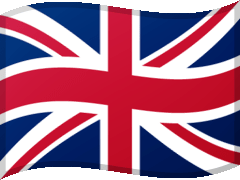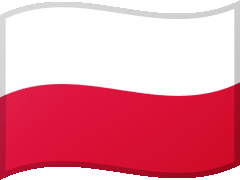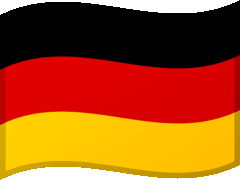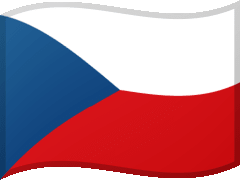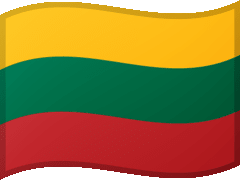From 1944, Lithuania remained under Soviet occupation. At the end of the 1980s. under the impression of the establishment of “Solidarity” in Poland and the reforms initiated in the Soviet Union by Mikhail Gorbachev, the social unrest intensified in Lithuania. Independence slogans gained wide support. Changes also affected the Communist Party of Lithuania, in which the supporters of independence prevailed and decided to leave the Communist Party of the Soviet Union at the end of 1989. This process was not stopped by a visit paid by Mikhail Gorbachev in Vilnius on 11–13 January 1990, to which the Lithuanians responded with an independence rally. It was attended by about 250 000 people. In February, the Supreme Council of the Lithuanian Socialist Soviet Republic adopted a resolution which declared that the act of incorporation of Lithuania into the Soviet Union null and void. The presence of the Soviet army was considered illegal. Also national and religious holidays were reinstated.
The first round of parliamentary elections took place on 24 February. They were completely free, as by virtue of the provisions from the end of 1989 and the beginning of 1990, non-communist candidates could participate in them, and the active right to vote was granted only to people permanently residing in Lithuanian (which excluded, among others, the Soviet soldiers stationed there). The elections were won by representatives of Sąjūdis - the Lithuanian Movement for Reconstruction established in June 1988 - who were supporters of independence and democratisation. The leader of Sąjūdis, musicologist Vytautas Landsbergis, became chairman of the elected Supreme Council and also head of state. On 11 March, the resolution on the restitution of the independent Lithuanian state was adopted. It emphasised the historical continuity with the independent republic of the inter-war period. The act guaranteed the rule of inviolability of borders and respect for human, civic and ethnic rights. The name “Republic of Lithuania” and the historic emblem - “Pohonia” were reinstated. On 17 March, the first government of the restored Lithuania was formed, with Kazimira Prunskienė, a Sąjūdis activist, as prime minister. She was in office until early 1991, when she resigned due to the economic crisis.
The act of Lithuanian independence, which became a model for other Soviet republics, met with strong opposition from the USSR. Gorbachev declared it unlawful and demanded its revocation. That demand was rejected by Lithuania. On 22 March Gorbachev issued a decree on ”Additional measures to ensure the rights of Soviet citizens, and to protect the sovereignty of the Soviet Union on the territory of the Lithuanian Socialist Soviet Republic” which ordered that the Lithuanians be deprived of their weapons. Negotiations undertaken by Lithuania with the Soviet authorties failed to bring any results. Tension was rising. Because Lithuania did not comply with the Soviet ultimatum, from April, Moscow imposed an economic block on it, cutting the country off from supplies of crude oil and limiting the supplies of gas and other raw materials, hoping that in such a difficult economic situation, the society would turn against the new government. Problems with supplies occurred. Moscow also tried to intimidate Lithuanians with military manoeuvres and the occupation of public buildings by its army. In order to create conditions for negotiations and put an end to the blockade, in June, the Supreme Council adopted a moratorium on the act of 11 March under the influence of Western countries. In July, the blockade was terminated.
On 19 September, the Lithuanian authorities announced their protest against Soviet attempts at destabilising the situation in the country. In November they issued a statement on the right to refuse service in the army of a foreign country, which caused Lithuanians to leave the ranks of the Soviet army. In 1990, Lithuania vigorously tried to become more active in the international arena and develop contacts with other Baltic republics. Lithuanian information offices were established in western countries, which later became diplomatic representations. The first one was established in October in Oslo. On 12 May in Tallin, representatives of Lithuania, Latvia and Estonia resumed the activity of the Council of the Baltic States Council, established under the agreement of 12 September 1934, and pledged to support each other in the process of regaining independence. The first meeting of the council was held in Jūrmala in Latvia on 6 June, where it was decided that a joint strategy must be adopted in the negotiations with the Soviet Union. At a subsequent meeting in July, the republics gained support for their aspirations from Boris Yeltsin, who announced the initiation of bilateral talks. As a result of this, in the middle of 1990, Lithuania concluded an economic cooperation agreement with Russia for the following year.
Meanwhile Gorbachev still refused to recognise the independence aspirations of the republics and sought to preserve the integrity of the USSR’s territory. To this end, he advocated the conclusion of a new Union treaty. On 24 December, he announced a state-wide referendum on the issue, to which the Baltic republics, despite pressure, did not agree. Lithuania refused to send delegates to the Congress of People's Deputies of the Soviet Union held in December. Negotiations conducted with the Soviet authorities until the end of 1990 did not bring any results and were suspended in December. Also in December, Soviet military patrols appeared on the streets of Lithuanian cities and asked passers-by to produce ID documents. The pretext for this was an attempt at overcoming the Lithuanian boycott of conscription to the army. The Soviet propaganda presented Lithuania as a country totally overwhelmed by crisis. The attempts at intimidation turned out to be ineffective. On 28 December, the Lithuanian Supreme Council lifted the moratorium that suspended the act of independence. On 11 January 1991, the Soviet intervention in Lithuania began and bloodshed ensued. In the end, however, it was a complete failure. Lithuania defended its independence.
